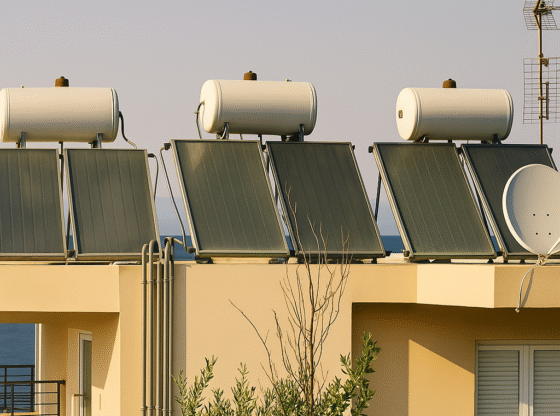Solar water heaters are becoming increasingly popular in Nigeria, especially in areas with abundant sunlight like Port Harcourt. They offer an efficient and eco-friendly way to heat water, reducing reliance on electricity and lowering energy bills.
How Solar Water Heaters Work
Solar water heaters utilize solar collectors, typically installed on rooftops, to absorb sunlight and convert it into heat. This heat is then transferred to water stored in a tank, providing hot water for household use. There are two main types:(Wikipedia)
- Passive Systems: These rely on natural convection to circulate water. They are simpler and have fewer moving parts, making them more durable and requiring less maintenance.
- Active Systems: These use pumps to circulate water or heat-transfer fluids. They are more efficient but may require more maintenance due to the additional components.
Types of Solar Water Heaters
- Flat Plate Collectors: These are the most common type, consisting of a dark flat plate absorber, a transparent cover, and insulation. They are effective in sunny conditions and are suitable for most Nigerian climates.(Wikipedia)
- Evacuated Tube Collectors: These consist of parallel rows of transparent glass tubes. Each tube contains an absorber tube that collects solar energy. They are more efficient in colder climates and can retain heat better, making them suitable for areas with less consistent sunlight.(Wikipedia)
Lifespan and Maintenance
With proper maintenance, solar water heaters can last between 15 to 25 years. Regular maintenance includes:
- Cleaning the Collectors: Dust and debris can reduce efficiency.
- Checking for Leaks: Inspect the system for any signs of leakage.
- Monitoring the Pump (for active systems): Ensure the pump is functioning correctly.
It’s advisable to have a professional inspect the system every 3 to 5 years to ensure optimal performance.
Benefits of Solar Water Heaters
- Cost Savings: Reduces electricity bills by using free solar energy.
- Environmental Impact: Decreases reliance on fossil fuels, reducing carbon footprint.
- Energy Independence: Provides hot water even during power outages.
- Low Maintenance: Especially for passive systems, which have fewer components.
Is It Suitable for Your Home?
Before installing a solar water heater, consider:
- Roof Space and Orientation: Ensure there’s enough space and that the roof faces the sun.
- Water Quality: Hard water can cause scaling, affecting efficiency.
- Initial Investment: While the upfront cost is higher, the long-term savings are significant.
Consult with a professional installer to assess your specific needs and determine the best system for your home.
Embracing solar water heating is a step towards sustainable living, leveraging Nigeria’s abundant sunlight to provide an efficient and cost-effective solution for hot water needs.
